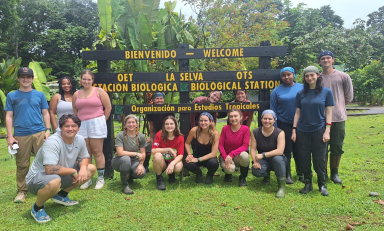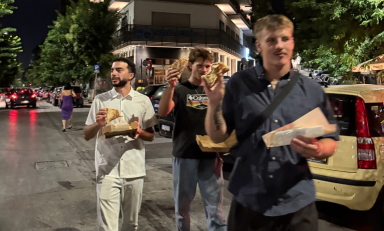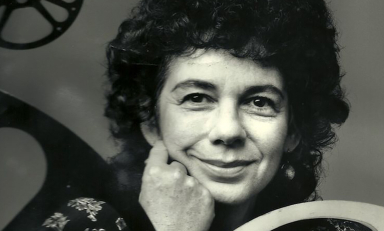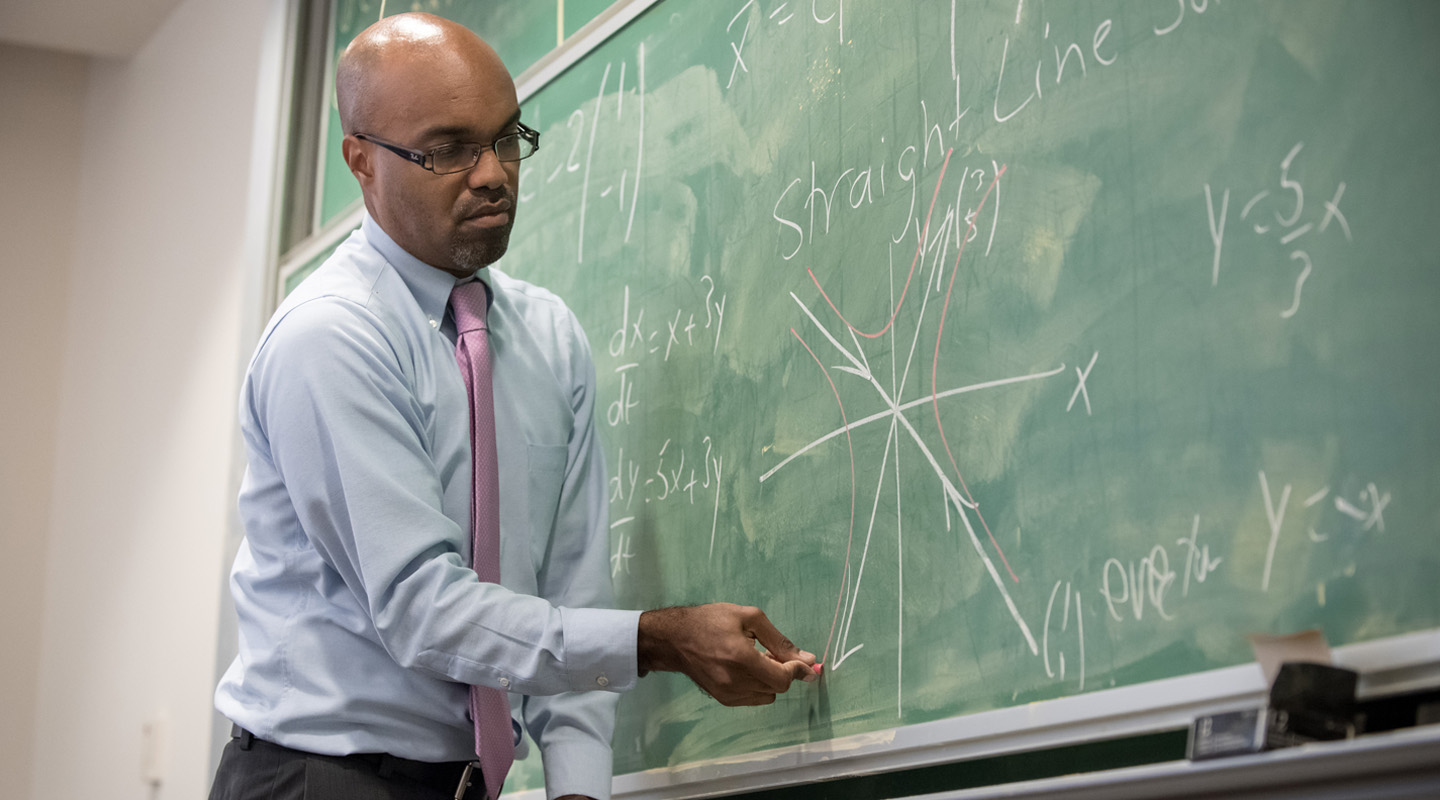
After a 30-year career at Occidental, the mathematician, researcher, administrator, and chess master applies his problem-solving skills to a new role as dean
Ron Buckmire grew up in a house full of Cap’n Crunch. His father, R.E. Buckmire, a University of Massachusetts Ph.D. turned food scientist for the Quaker Oats Co. in Barrington, Ill., invented the Crunch Berry for the iconic cereal line. “My sister and I had so much Cap’n Crunch as kids,” Ron recalls. “We were testers basically.”
Gastronomic research notwithstanding, Buckmire’s scientific journey began as a schoolchild in the Caribbean, where he completed his secondary education. “My father did not want his kids going to U.S. high schools in the late ’70s,” recalls Buckmire, whose family relocated to Barbados when he was 11. “My best teacher was a chemistry teacher, so that’s why I liked chemistry—but math was always incredibly easy.”
In a compromise with his dad, Buckmire enrolled at Rensselaer Polytechnic Institute (RPI), an engineering-oriented school, as a physics major. After one semester, he switched to mathematics, and that set him on a path to earn B.S., M.S., and Ph.D. degrees from RPI in eight years—and a 30-year relationship with Occidental that culminated with his retirement as emeritus professor of mathematics at the tender age of 57.
As a doctoral student, Buckmire met Professor Don Goldberg, who was chair of the Math Department at Oxy. “He said, ‘We have this minority postdoctoral scholar residence position when you graduate. You should apply.’ So I did, and I got the position. My now-husband was at UCLA and my sister was at USC, so I was looking to come to L.A. anyway, and the postdoc at Oxy came with a rent-free residence. That was very enticing.”
After arriving at Oxy in 1994, his early teaching experiences were shaped by the mentorship of Goldberg, who became both a role model and a friend. Their parallel paths were striking—both openly gay mathematicians and department chairs who later became College administrators. Goldberg left Oxy in 2002 to become a dean at El Camino College. Last August, Buckmire left Occidental to become dean of the School of Computer Science and Mathematics at Marist University in Poughkeepsie, N.Y.
Looking back on his time in Eagle Rock, Buckmire says, “I never intended to be here for 30 years, but I found a way of experiencing the different ways one can be a member of the Occidental community—being a chair, then being an associate dean, and then having the freedom to do something else and come back. That really freshened it up for me.”
Soon after the retirement of Professor of Mathematics Emeritus Benedict Freeman in 1995, Buckmire inherited his office in Fowler Hall. “It wasn’t a great office,” he says, “but in math terms, he’s the father of a Fields Medal winner [Michael Freedman, who was honored for his work on the four-dimensional generalized Poincaré conjecture by the International Congress of Mathematicians in 1986]. That's like royalty. And Benedict Freedman’s own story—a screenplay writer who then goes back late in life to get a Ph.D.—is just amazing.” (The Math Department continues to award the Benedict Freedman Prize for Mathematical Promise and the Benedict Freedman Senior Prize each year.)
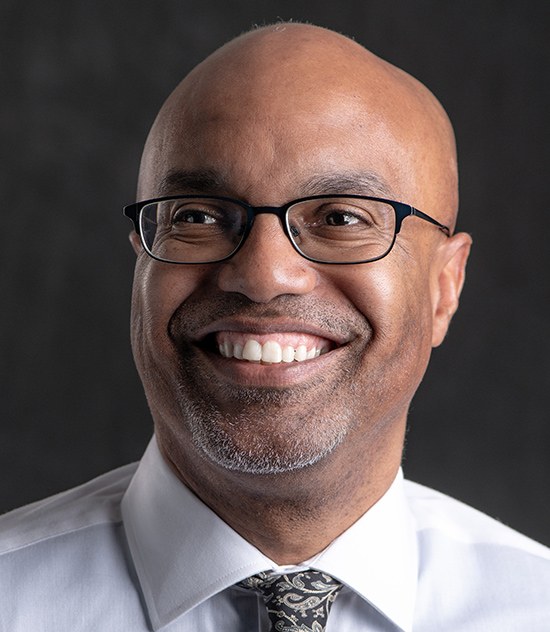
Buckmire was named an assistant professor of mathematics in 1996, tenured and promoted to associate professor in 2004, and achieved the rank of full professor in 2014. Of all his experiences in the classroom, “Team teaching in the Core Studies Program was one of the most enjoyable and interesting experiences I had—something you'd only get at a place like Oxy,” he says. In 1997, Buckmire taught a “groundbreaking” class called Race, Gender, and Justice with Gabrielle Foreman from English and Donna Maeda from Religious Studies. “We used interracial marriage and same-sex marriage as tropes for analyzing what the meaning of justice is and has been and will be in the future.”
At the same time, he says, “We were teaching students this newfangled technology called the World Wide Web.” This was 1997, when the internet was still a novelty in education. “I remember we said, ‘OK, take your mouse and click on the screen,’ and someone picked up their mouse and put it on the screen. They didn’t know what a mouse was.”
On the administrative side of academics, Buckmire’s approach to leadership is deeply informed by his mathematical training: “Because we have this sort of orientation towards abstraction, mathematicians see problems as moving parts. I think of administration in that way as well—you can break things down to their constituent parts. Why is this thing not working? What are the inputs? What are the outputs?”
His expertise eventually drew the attention of the National Science Foundation, where Buckmire first served as a program officer in the Division of Undergraduate Education from 2011 to 2013. In 2016, he returned to the NSF as lead program director for the Scholarships in Science, Technology, Engineering, and Mathematics (S-STEM) program. During his stewardship, over $250 million was awarded to colleges and universities to support low-income STEM majors, impacting thousands of students across the country.
Initially, he says, “I wasn’t planning on coming back to Oxy.” But in 2018, he was recruited to return to campus by Dean of the College Wendy Sternberg to what became a four-year appointment as associate dean for curricular affairs. “It was more problem solving,” he explains. “And then, COVID-19 happened. For anyone who was an administrator during COVID, we’re all blood brethren and sisters together. In a matter of months, we had to completely reinvent how academia works. It was wild.”
Looking back on the pandemic, “I think there were some positives, right?” he says. “We found out that you can actually do things remotely, that it is possible to be flexible in the ways that people can work.” At the NSF and other government organizations, he notes, people were teleworking even before COVID, using conferencing tools such as WebEx and Skype. “I had already seen a lot of that before. It’s interesting to find out how agile organizations can be when they’re in an existential crisis.”
Outside of Oxy circles, he has served as vice president for equity, diversity, and inclusion at the Society for Industrial and Applied Mathematics (SIAM) and as a trustee of the Institute for Computational and Experimental Research in Mathematics (ICERM). He is a co-founder and board member of Spectra, the association for LGBTQ+ mathematicians and their allies.
Last August, Buckmire left Occidental after 30 years to become dean of the School of Computer Science and Mathematics at Marist University in Poughkeepsie, N.Y. In his new role, “I’m dean of a school that has about 500 students within a university of 6,000 students, so Marist is both bigger and smaller than Oxy,” he says. “Like Occidental, it’s a liberal arts college, but they are very much oriented on making sure their students get jobs.
“What attracted me was two great tastes that taste great together—the liberal arts college with professional programs,” he adds. “My school has pre-professional programs, such as cybersecurity and information technology, as well as math and computer science. And something like 85 percent of all students do internships, which are basically a tryout for a job.”
Another attraction for Buckmire was the university’s international footprint: Marist has a campus in Florence, Italy (“You can actually get a degree from Marist without ever setting foot on the Poughkeepsie campus”), and residential programs in Dublin and Madrid. “I’m a naturalized citizen and an international person,” he says. “Marist felt like a good fit, and it seemed like a good reason to move 3,000 miles away.”
Together with his husband of 17 years, bass baritone turned data scientist Dean Elzinga, Buckmire is exploring life in Poughkeepsie with the expectation of returning to California one day: “We see it as an adventure—Poughkeepsie is not our forever home, but it’s our home for a significant time.”
Armed with a B.S. in physics from Caltech and a master’s in mathematics from UCLA, Elzinga sang opera professionally for nearly 30 years; now he works for IBM Research. (The couple met in cyberspace on the soc.motss Usenet newsgroup in 1990 and in person in January 1991. They were civilly united in Vermont on 08/08/00 and tied the knot legally in California exactly eight years later, less than three months before the state’s voters passed Proposition 8.)
“I’m not one of those people who wants to be teaching at 70, when there are so many other things I could be doing,” Buckmire says. “I understand at that point that you’re approaching the peak of your earnings, so it’s hard to turn that off. But if you’re earning money and you can’t do anything with it because you’re busy all the time, then what’s the point?”
Put another way, Buckmire seems to have figured out the ultimate work hack. “Yes,” he says with a smile. “Enjoy life while you can.”
Jesse Kreger ’15: I was extremely intimidated when I first met Ron Buckmire. It was the beginning of my sophomore year at Oxy, and I had just declared my math major. I was really excited to be in his differential equations class, but I was also keenly aware that Ron was a U.S. Chess Federation Senior Master (who beat an International Master at a very young age), served in leadership positions at the National Science Foundation (among other important institutions), and was a world-renowned leader in mathematics education and diversity and inclusion in math.
When I stepped into his classroom, the atmosphere was anything but intimidating. Ron was extremely accessible, encouraged questions, and clearly explained the very complex material and structure of the course. Each mathematical concept was broken down into easily digestible worksheets and quizzes that had been refined and optimized over many years of teaching. Furthermore, Ron was always looking to integrate new technology, new methods of grading, and new real-world examples that helped maximize student engagement and learning. I was blown away by Ron’s openness to solicit feedback from students about things that did or did not work for them. Ron is clearly an expert on teaching math to individuals, rather than just for the sake of teaching math.
Throughout the course, Ron and I bonded over our love of math and tennis. He helped introduce me to differential equations and mathematical modeling, which led to a very fun senior honors thesis project with him on mathematical modeling of epidermal wound healing. These experiences inspired me to pursue a career in mathematical modeling and differential equations research. After Oxy, I received a Ph.D. in math from UC Irvine and am now a researcher in the computational biology department at USC, where I integrate high-dimensional data with mathematical and machine learning models in order to understand complex biological systems.
I will always be thankful to Ron for inspiring my love of math modeling—and, more importantly, for being an excellent role model. Ron showed me that mathematicians can be cool people with diverse interests who are great teachers and communicators.
Winner of the Benedict Freedman Prize for Mathematical Promise, Jesse Kreger ’15 is a postdoctoral research associate in the Department of Quantitative and Computational Biology at USC.
Top photo: Buckmire in the classroom at Occidental in 2015.

